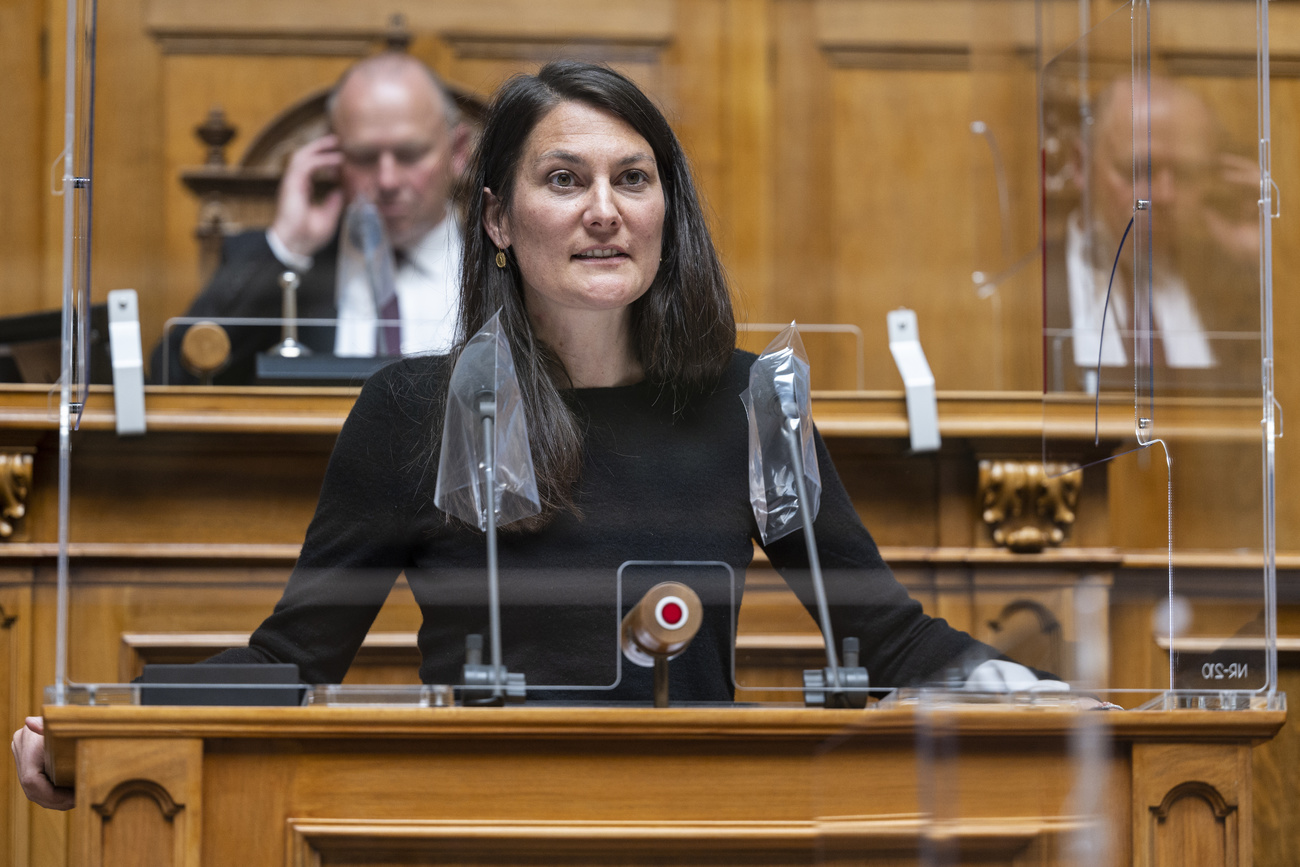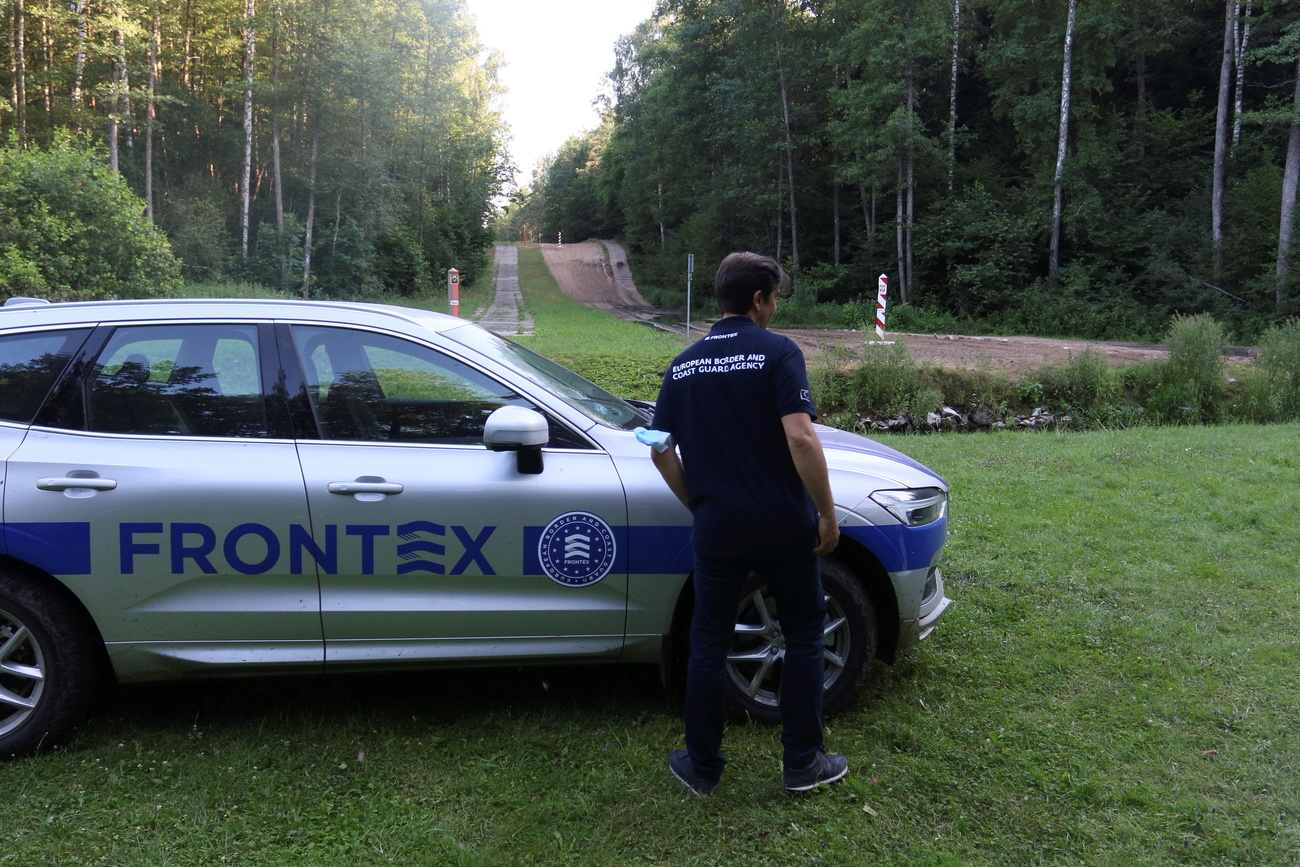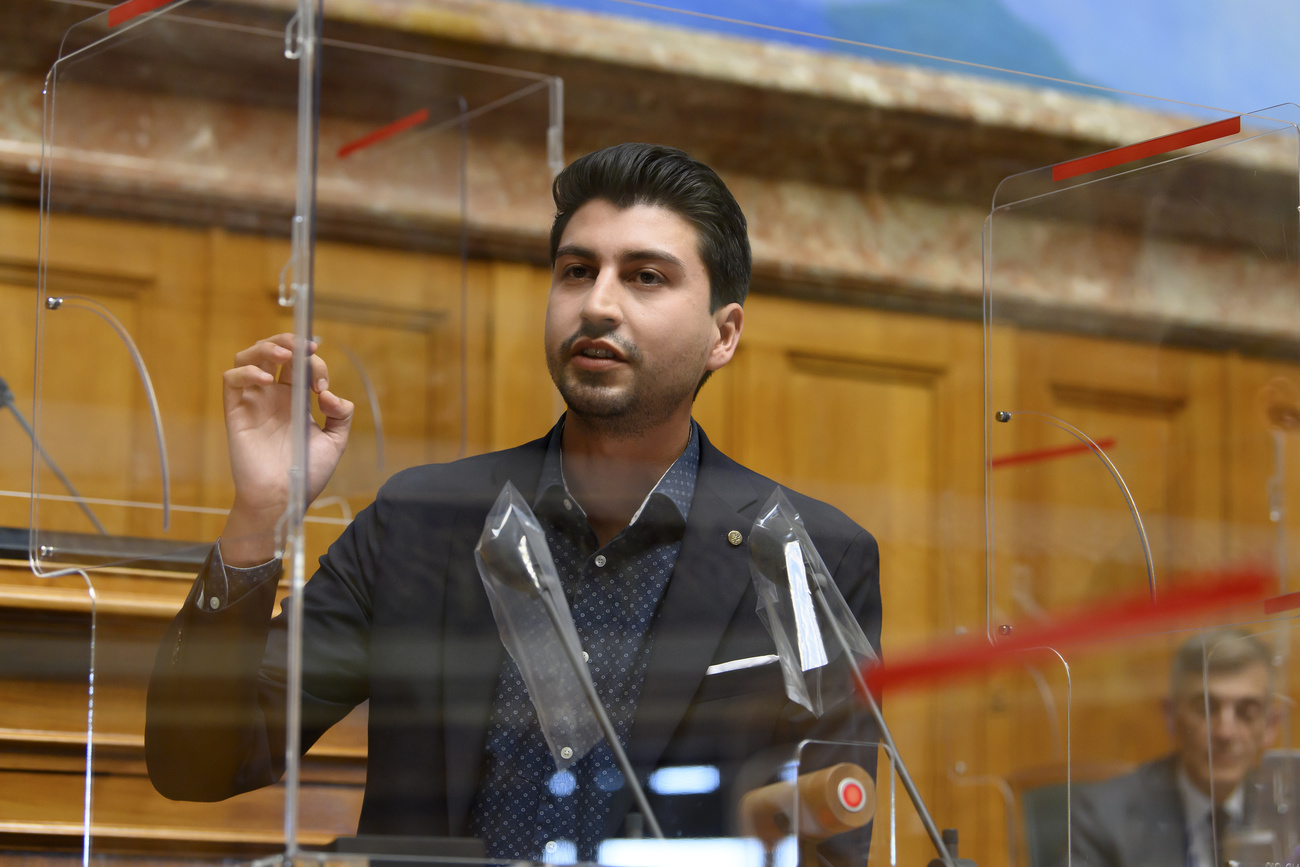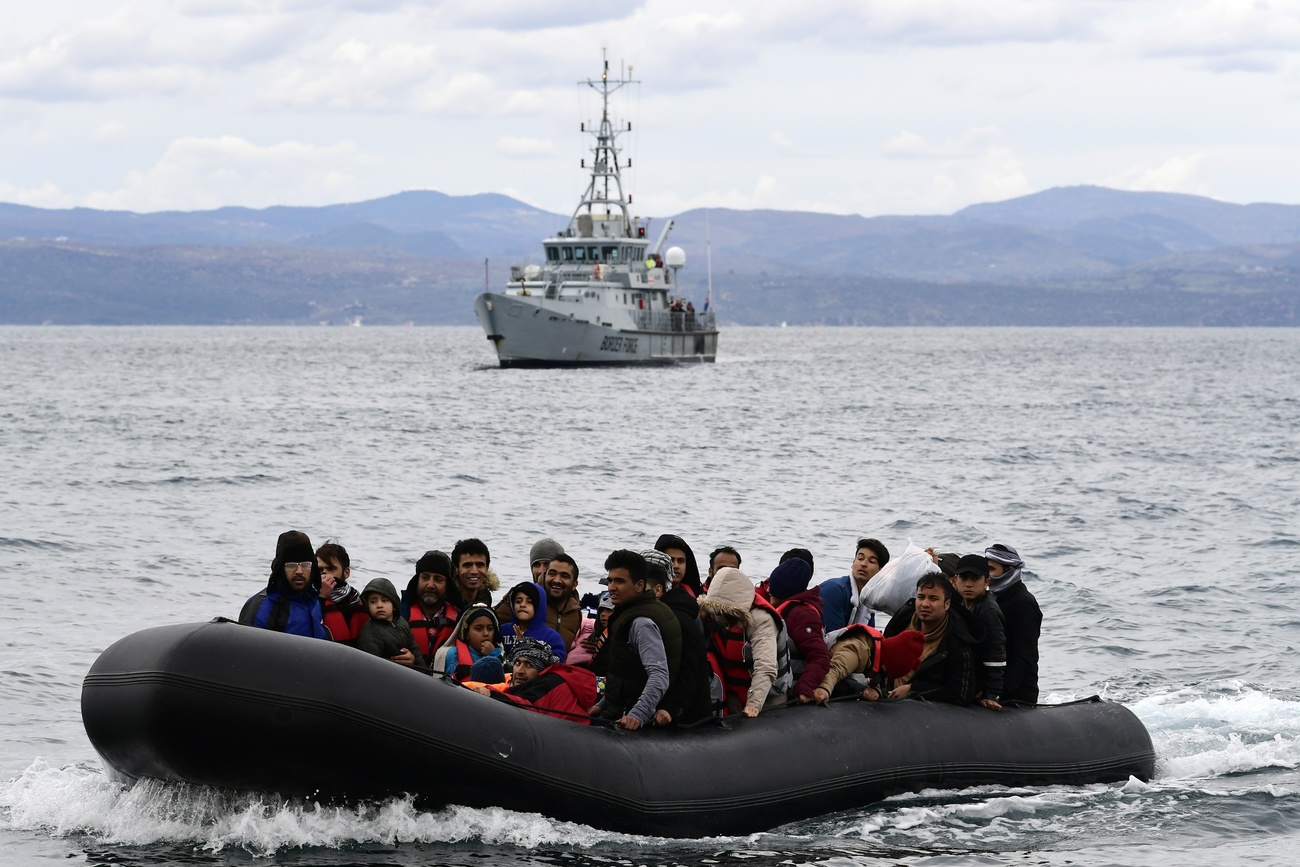Frontex vote: ‘We risk leaving Schengen,’ warns parliamentarian Tiana Moser

Swiss citizens will vote on May 15 on whether Switzerland’s contributions to the European border agency Frontex should be increased. Liberal Green Party MP Tiana Moser is in favour of an increase. Otherwise, she says, Switzerland risks leaving the Schengen Area.
Switzerland is an associate member of the European Schengen area, within which people have the right to move freely. So it contributes to the funding of Frontex. The agency’s budget has been increased, which would mean a rise in Switzerland’s contribution from CHF24 million ($25 million) to CHF61 million a year. The group Migrant Solidarity Network and other organisations have resorted to a referendum to oppose thisExternal link.

More
Switzerland votes on its contribution to European border agency
Tiana Moser, leader of the Liberal Green group in the Swiss parliament, has always pushed for closer relations with the European Union.
SWI swissinfo.ch: Russia has invaded Ukraine, and Switzerland and the EU have started talks on their future relations. Is the timing of this vote rather unfortunate?
Tiana Moser: Referendums are a part of direct democracy. The government and parliament then have the task of explaining the proposed legislation to the population. In this case, the Russian invasion of Ukraine has led to increased security needs across Europe, including in Switzerland. It has also increased awareness of the necessity for countries with shared values to stand together and cooperate.
Our close bonds with European countries and with the EU on matters of security and migration are illustrated by our participation in Schengen. It is damaging to put this at risk, especially in the current situation.

More
Frontex vote: ‘We need legal migrant routes as well as border controls’, says Fabian Molina
SWI: Opponents of the referendumExternal link say Switzerland risks sliding out of the Schengen agreements, but its backers dispute that. What is correct?
T.G.: Legally, the matter is clear. We agreed to participate in Schengen in a referendum in 2005, and that comes with a responsibility to participate in its developments. We have the right to voice our views, but no right to take part in decision-making. If we now refuse to adopt a change, we are automatically evicted from Schengen after six months unless we find another solution within 90 days. I believe this is impossible from a practical point of view: Switzerland would have to decide what it wants within a very short time. And after that – during a war on European territory – it would have to reach agreement with every single EU country and the European Commission. So we really are risking a departure from Schengen. And that would be catastrophic.
SWI: The leftwing Social Democratic Party justifies its support for the referendum by pointing to the lack of humanitarian counter-measures, and it wants the migrant resettlement quota raised…
T.G.: The Social Democratic Party is playing a game with enormous risks for the entire Swiss population. It hasn’t achieved one of its political goals – increasing the resettlement quota – so it is endangering our Schengen membership, with drastic implications for our security and freedom of movement, and consequently for the economy. That is not good, but it is how democracy sometimes functions. It’s possible to keep campaigning for the quota increase, and I will support that. Switzerland can and must do more here. But complicating our relations with the EU even further by voting no to Frontex doesn’t make sense and is irresponsible.
SWI: Discussions about Frontex are taking place not just in Switzerland: the EU parliament plans to freeze part of the 2022 Frontex budget, after the European anti-fraud agency OLAF accused its management of serious misconduct. Is this a sign of the state of European asylum policy?
T.G.: Neither I nor other supporters of this Frontex bill [in the Swiss parliament] are trying to claim that the agency’s work is problem-free. But asylum mistakes happen in Switzerland too. The important thing is to examine these and improve things. The EU’s proposed Frontex changes do just that: 40 new basic rights commissioners are to be appointed to better monitor the agency. And of course, it is also a question of resources: Frontex supports the states on Europe’s external borders, which are also our borders. We can’t stand aside and leave this work to others. In other words, we can’t just say we’re happy to enjoy freedom of movement because of the many advantages it brings us, while leaving the unpleasant security and migration work to other countries. In the end, Switzerland has to take responsibility and be seen as a reliable partner.
SWI: You mentioned extending the protection of basic rights. Switzerland is already represented on the Frontex supervisory board. What kind of influence do we actually have over the agency?
T.G.: We do have representation, which accordingly stands up for our values. The current Swiss bill shows that problems have been recognised and we intend to address them. The supervisory board and our representative have assured us of this. In addition, Switzerland is offering expertise as well as two basic rights commissioners who will weigh in.
Regardless of this, it is not just about freedom of movement in the Schengen Area, which benefits our economy and citizens. We hear less about the fact that border security is important for reasons beyond migration policy, such as fighting organised crime and human trafficking. For cross-border policing we are reliant on Europe-wide cooperation, because we can’t realistically do much alone. This should also be important for the Frontex critics. But they are burying this in the referendum campaign.
SWI: The debate about Frontex is emotional in Switzerland – above all because of the well-documented push-backs at Europe’s external borders. These, however, are the work of national authorities. Does Switzerland pressure European states to comply with human rights on a bilateral level?
T.G.: This is exactly what happens in our cooperation with Schengen. It is one of the issues under discussion in our relations with the EU, where we are still negotiating. Our justice minister can also engage directly with EU interior ministers at their meetings, where such questions are debated. Our relationship with the European Union has come under considerable strain since negotiations for a framework agreement were broken off, and on top of this, the EU has completely different priorities at the moment because of the Ukraine war. If we now also put our Schengen membership at risk, we are weakening our position in the European policy arena again.
Translated from German by Catherine Hickley

In compliance with the JTI standards
More: SWI swissinfo.ch certified by the Journalism Trust Initiative





You can find an overview of ongoing debates with our journalists here. Please join us!
If you want to start a conversation about a topic raised in this article or want to report factual errors, email us at english@swissinfo.ch.